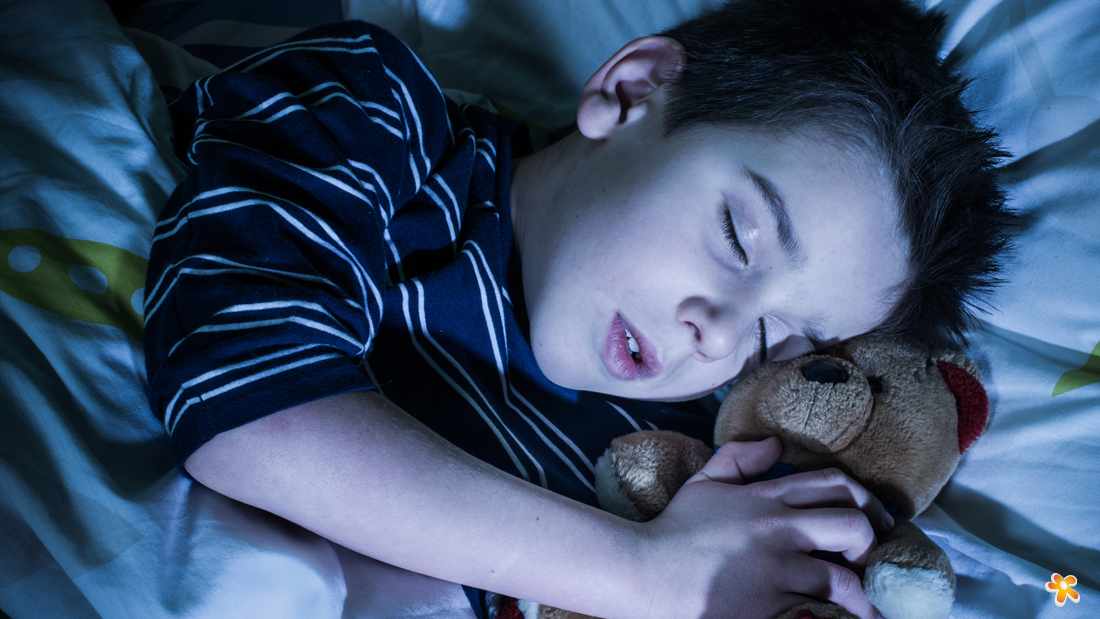It is not uncommon for children to have some sort of sleep issue or difficulty. In fact, around 30% of children have difficulty getting or staying asleep on a regular basis. For children with special needs, that number almost doubles, due in part to sensory sensitivities. If your child is not getting enough sleep, he is at a higher risk for anxiety, depression, and his relationships and school work can suffer as well. Making sure his bedroom environment and nighttime routine is consistent and sensory friendly is very important when it comes to maximizing his restful sleep.
Create a consistent bedtime routine.
Be consistent with your child’s bedtime. Don’t set different bedtimes for different days. For example, it may be too confusing to have one bedtime for weekdays and another for weekends, so try to keep everyday the same time. Implement a 30-60 minute quiet time before her scheduled bedtime. This allows her to calm down and relax allowing her body and mind to begin preparing for sleep. Her quiet time may include a warm and relaxing bath, story time, or listening to soft music. Avoid video games, television, and other stimulating activities. If she has trouble with transitions, consider making a simple picture schedule for her to follow. Schedules make the activity and the transitions more concrete than just simply saying them.
Make his bedroom a peaceful place for rest.
Your child needs to associate his bedroom with quiet sleep and bedtime. If possible limit non-sleep related activities in his room, such as regular play, video games, or watching television.
Minimize sensory overload in his bedroom.
A bedroom can quickly become overstimulating to a child with special needs. Keep in mind any sensory avoidances she may have when preparing her bedroom. Dull lamps or a nightlight are commonly found in children’s bedrooms, but may be too stimulating for her. Noise created from vents out outdoor noise can also be an issue that can lead to sleep issues. If noise is an issue for her, you may consider a white noise machine or a small fan that continuously runs during the night. These may help block out any bothering noises.
Avoid caffeine and excess sugar after dinner.
Both are stimulants and in addition to helping provide energy, they deter the body from making melatonin which aids in sleep. The effects can last for hours which is why it is often recommended not to eat or drink any high sugar and caffeine products after dinner or 2-3 hours before bedtime.
Give your child a relaxing and melatonin producing snack.
Melatonin is produced naturally by your body and aids in the sleep process. Tryptophan is an essential amino acid found in food that helps your body produce melatonin. Giving her a snack that has tryptophan before bed can help her body prepare for rest. Milk, yogurt, cheese, bananas, and peanuts are all good sources of tryptophan.
Sources: Pediatrics.About.com | FriendshipCircle.org | MedicineNet.com
Making Sure Your Child Gets the Best Sleep Possible
Shandy Marso, Contributor



